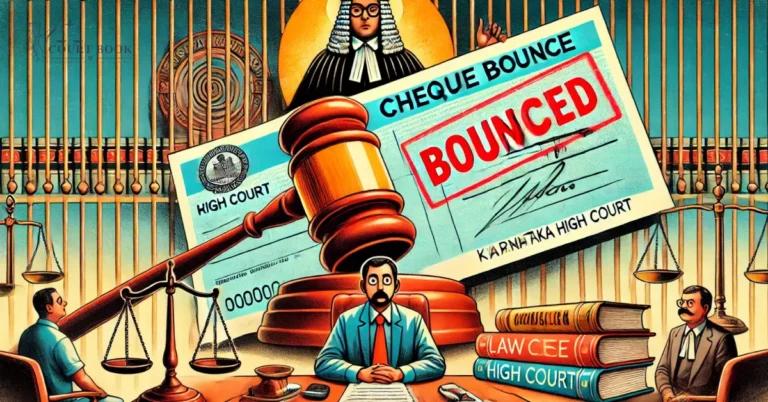The Karnataka High Court has clarified a critical aspect of cheque bounce cases under the Negotiable Instruments Act, 1881. In a judgment delivered on April 9, 2025, Justice H.P. Sandesh ruled that the day on which a bank informs the cheque holder about the dishonour of a cheque must be excluded while calculating the 30-day limitation period for issuing a demand notice to the drawer.
This decision arose from an appeal filed by B.R. Anand against the acquittal of V.R. Gisha by the Trial Court in Bengaluru. The Trial Court had earlier held that the notice demanding payment was served one day late, thus beyond the legally prescribed limit under Section 138(b) of the Act.
According to Section 138(b):
"The payee must give a written notice to the drawer of the cheque within 30 days of receiving information from the bank regarding the dishonour."
In this case, the bank informed the complainant about the dishonoured cheque on August 5, 2017, and the notice was issued on September 4, 2017. The Trial Court considered the notice to have been served on the 31st day, thereby invalidating the complaint.
However, Justice H.P. Sandesh emphasized that the limitation should exclude the date of information. Quoting the Supreme Court's decision in Econ Antri Limited vs Rom Industries Limited (2014), he stated:
Read Also:- Karnataka HC Quashes Criminal Case Against Ex-Employees, Calls It Abuse of Process
“The limitation period is to be calculated by excluding the date on which the cause of action arises.”
The judge also referred to Saketh India Ltd vs India Securities Ltd (1999), where it was held that such exclusion of the date is valid in computing the limitation period. Thus, the High Court concluded that the notice served was within the valid time frame.
Background of the Case:
B.R. Anand, a retired employee of BESCOM, lent Rs.11,70,000 to V.R. Gisha, a co-worker, for personal needs including her sister’s marriage and house construction. The loan was given in June 2014 with the promise of repayment within two years. When Gisha failed to repay, she issued a cheque dated August 2, 2017, which bounced due to insufficient funds.
After serving a legal notice and receiving no response, Anand filed a complaint under Section 138. The Trial Court acquitted the accused citing a one-day delay in issuing the notice and alleged material alteration in the cheque.
High Court's Findings:
The High Court rejected both findings of the Trial Court. Justice Sandesh noted that:
“The correction on the cheque was countersigned by the accused herself, and this fact was overlooked.”
Additionally, no defense evidence was provided by the accused, and she failed to reply to the legal notice. The judge observed that:
“When a cheque is issued and dishonoured, and no rebuttal is made by the accused, the presumption is in favor of the complainant.”
The Court also pointed out that the accused did not deny the signature or transaction in a timely manner, weakening her defense.
The High Court set aside the Trial Court’s acquittal and ordered the accused to pay a fine of ₹12,00,000. Out of this, ₹11,70,000 is to be given to the complainant and the remaining ₹30,000 to the State. If the amount is not paid within two months, the accused will serve one year in prison.
Case Title: B R Anand AND V R Gisha
Case No: CRIMINAL APPEAL NO.567 OF 2019
Appearance: Advocate Lohit M for Appellant.
Advocate Chandrashekar P Patil for Respondent















